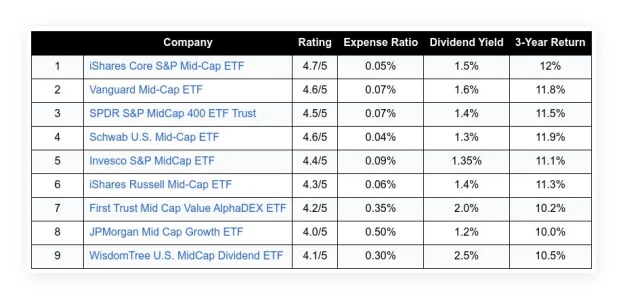You are not alone if you habitually fear running out of funds during your retirement years. As much as 66% of US citizens are concerned about their finances running dry as they near their retirement age.
Monetary fears during your retirement are genuine. After all, everyone craves a financially secure future after working for decades! Around 50% of Americans fear unexpected health expenses during their retirement, while 21% are worried about early retirement.
Meticulous retirement planning is what you need to address these challenges. In this article, we have discussed eight legitimate retirement fears and also recommended effective guidelines to mitigate them.
Table of Contents
ToggleCommon Retirement Fears and How to Sort Them Out?
The thought of retirement often evokes a sensation of fear, and the reasons are quite natural. With no source of income or means to generate fresh revenue streams, you may feel cramped for funds! While money matters happen to be the biggest retirement fear, health issues and other woes continue to bother Americans. Let’s evaluate these common retirement fears and check out how you can overcome them.
1. Running Out of Savings
Do you know that around 40% of US citizens don’t even have $5,000 in their retirement savings accounts?
Miscalculations in your retirement savings often lead to your accumulations running dry. There’s no point denying that you fear outliving your savings. While these are rational fears and legitimate enough to spark panic, proper retirement planning holds the secret to saving adequately.
The solution
Planning your investments in annuities strategically ensures a steady flow of funds. Investing in annuities, you can warrant a consistent availability of paycheck after your retirement. Financial experts often go for QLACs (qualified longevity annuity contracts) to guarantee income later in their lives. This type of deferred annuity brings you much-needed mental peace as you save for the long term.
Experts also recommend segmenting the lifetime of a retiree into several time horizons. Accordingly, they create different investment portfolios to address the financial needs of each segment. Hence, they devise a clear plan to guarantee income through annuities.
Depending on your employment status, it’s wise to maximize the contributions to your 401(k), traditional IRA, or Roth IRA.
With a practical retirement plan in place, saving for your future wouldn’t be a distant dream anymore.
2. Unexpected Medical Expenses
Mounting healthcare and treatment costs might bother retirees, given that 70% of people will likely need long-term care services. As you grow older, experiencing everyday health issues is quite common. So, how well are you poised financially to mitigate this expensive proposition? An obvious line of defense against future medical costs is to stay prepared with the right type of health insurance policies.
The solution
The best way to plan for your long-term healthcare expenses is to maximize your contribution to your 401(k) plan. This way, you can save adequately to manage your long-term medical expenses.
Besides, it’s wise to contribute to an HSA (health savings account). In the process, you can accumulate a dedicated pool of funds to manage long-term medical expenses during retirement. Contributing to an HSA also brings you some tax benefits
- You can curtail your current tax payment since the contributions to HSA are made before tax.
- The growth of your investments is deferred from tax.
- So long as you use the amount for healthcare purposes, you can withdraw it free from tax.
If you are already in your 50s, long-term care coverage is worth considering. This would cover the cost of in-home care for nursing, which typical health insurance policies don’t cover.
3. Inflation
Inflation continues to be a pressing concern not only for retirees but for people of all age groups. With inflation refusing to dip below 6%, chances are high that it would erode your savings sooner than later. This directly reduces the purchasing power of retirees, considering that inflation will continue to rise over the next few decades.
Therefore, it’s wise to structure your savings portfolio for retirement, which can potentially outpace inflation. The secret lies in diversifying your assets in such a way that can mitigate the damaging impact of inflation.
The solution
It pays to invest in assets like real estate and commodities, which undergo a value appreciation during inflation. Considering the average inflation rate to be 6%, look out for assets or investment opportunities which can outperform inflation.
Government-backed treasury bonds can help you hedge against inflation. Besides, try to channel some funds into high-yielding savings accounts, stocks, and mutual funds.
With long-term investment plans, you can also benefit from the compounding effect of interest. This way, retirees can battle inflation by strategically planning their wealth accumulation.
4. Reduced Social Security
Have you ever wondered what might happen if you are deprived of the promised social security during your retirement?
Well, in the first place, you shouldn’t consider social security to be a primary source of income during your retirement. The cash inflow you gain from social security can simply complement your existing income. It’s not meant to be a mainstream flow of funds as you plan a peaceful retirement.
The solution
With the political climate in the US volatile, fears of reduced social security are not impractical. The secret to strategizing your financial savings is to reduce your expenses and tap your home equity. Get your investments and taxes optimized way before you retire. Also, you may consider keeping a side hustle that should help you supplement your retirement income.
To make the most of your social security, consider applying for the same at a later stage of retirement. You may also consider working a few more years after 60 to accumulate enough funds for retirement.
5. Your Investments Wouldn’t be Sufficient
Well, you already know how fragile investment planning can be! The pandemic has already shown how stable stocks collapse and how such a catastrophe can lead to financially distressing periods. So, the amount you feel to be adequate for retirement now may not be sufficient later. A recession, pandemic, or other financial disaster can throw your plans out of the window.
Another worry that bothers retirees is how much they should retire with. While a million dollars was believed to be sufficient even a decade ago, the targeted amount is inching toward the two-million mark.
The solution
The opportunity of doing anything about the macroeconomic issues is limited. The best you can do is to draw a tactical line of defense against unexpected turn of events eating into your retirement savings. First, get a proper understanding of how you should allocate your assets. Choosing the right investment avenues will help you design a flawless portfolio.
For instance, if you are not into real estate, why not consider going for REITs? Also, consider your expense ratios from investments. The higher you pay to fund managers and fund expenses, the lower you would have at your disposal for investment.
While some of these fees are unavoidable, it’s wise to go for ETFs or index funds at lower fees to align with your financial objectives. This way, you can save thousands of dollars throughout your journey toward retirement savings.
6. Supporting Adult Children
Nothing is predictable, and circumstances might see you supporting adult children financially even after your retirement. While children habitually grow up to be financially independent and look after their old parents, there are a few exceptions.
Interestingly, a study reveals that 50% of US citizens end up sacrificing their retirement savings to support their kids financially. Being generous to your kids isn’t always intelligent when you consider your finances!
The solution
The best way to ensure mental peace during retirement is to plan your investments for kids strategically. With a dedicated pool of funds available to finance their education costs or help them establish themselves, you can proceed towards a peaceful retirement.
Here are some of the popular investment plans for children that can serve a wide plethora of purposes.
- 529 plans
- Roth IRA for children
- Custodial accounts
- Health Savings Account (HSA)
- High-yield savings account
7. Early Retirement
Well, you might have plans to work late into your 60s. However, with volatility in the professional front and recession, people are being forced to accept early retirement. The lack of job satisfaction, health issues, or job loss can force you to accept early retirement.
Retiring early adversely impacts your pension payouts and social security benefits. Eventually, it can mess up your retirement plans if you aren’t strategic enough to balance your expenses.
The solution
The first thing to focus on is to refrain from outliving your assets in case of early retirement. Be careful while withdrawing your retirement savings.
Besides, ensure that you have multiple sources of income and not just the salary from the ongoing job. Even after retiring early, many Americans continue their businesses or capitalize on their real estate investments. The best solution is to have a well-conceptualized financial plan to help you negotiate your financial woes during retirement.
Financial experts also recommend a few strategic moves that can help you curtail your expenses and enable you to save more.
- Take up a low-stress job or business for side income after retirement
- Downsize your home or spend less as you near your retirement
- Consider having a moderately aggressive investment portfolio
8. Caring for Elderly Parents
Caring for your parents is a generous move, but it pays to weigh your abilities. Research conducted at Boston College reveals that around 10% to 12% of retired people still care for their elderly parents or relatives. On average, caregivers provide between 70 to 95 hours of care each month. This can consume around 35% of your healthcare budget. You can mitigate this substantial burden only through proper financial planning.
The solution
Pre-emptive medical expense planning is necessary to ensure that medical expenses for your parents or elderly relatives don’t mess up with your retirement savings. Besides, special medical insurance policies are available that reimburse the expenses for caregivers. Planning the late-life expenses for your family members or parents can ensure mental peace during your retirement.
Endnote
Well, you spend your entire life working for a better living. A peaceful and worry-free retirement is what you deserve. No one loves being stressed about finances during their retirement days. So, it pays to have a foolproof financial strategy in place. Even when the world turns upside down, you should be able to generate consistent funding throughout your retirement life.
Financial fear during retirement is natural; the best practice is to accept it head-on. Consider consulting a financial advisor to be on the right track with your retirement savings.
FAQs
What is the right age to start saving for your retirement?
The earlier you start saving for your retirement, the better it should be. Try to start the wealth-building process from your mid-twenties if possible. This way, you would benefit from the compounding effect of interest that would help you grow your wealth portfolio.
What are some common retirement fears?
The shortage of funds during your retirement is the gravest financial fear. Besides, retirees seem concerned over rising medical bills, treatment costs, and inflation. Not saving sufficiently for their children also bothers retirees.
What is the biggest retirement risk?
Inflation and improper financial planning are the biggest retirement risks. Amidst market volatility, it pays to channel your funds intelligibly across different asset classes. This significantly helps in reducing retirement risks.
How to manage risk during retirement?
Having multiple sources of income is one of the most effective ways to reduce financial risks during retirement. Income from real estate, assets, stocks, commodities, dividend-yielding stocks, and mutual funds can also supplement your retirement savings.
How do I plan for my retirement?
Having well-defined and achievable long-term goals makes retirement planning easy. Considering the age when you start saving for retirement, put aside at least 15% of your monthly income for retirement funds. Also, consider market volatility, inflation, and other uncertainties while you plan for your future.

















